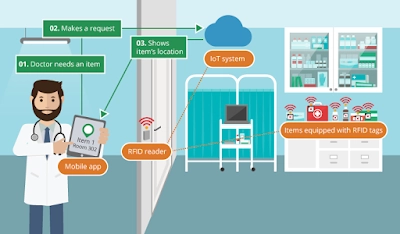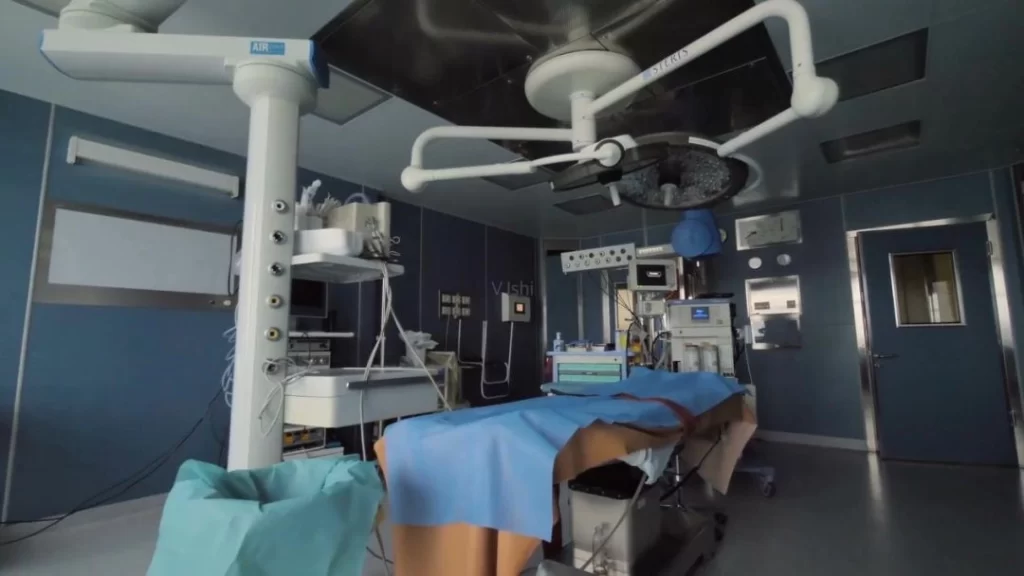Nowadays, the Internet of Things is in a stage of rapid development, and RFID technology has penetrated into almost every industry sector. RFID technology, also known as radio frequency identification (RFID) technology, can identify specific targets and read and write relevant data through wireless telecommunication signals without the need to establish mechanical or optical contact between the identification system and the specific target.

RFID technology is now widely used in many industries such as healthcare, retail, manufacturing, logistics, and public transportation, bringing great convenience to people’s lives and a quantum leap in work management efficiency for business units.
In the medical field, traditional hospitals often adopt manual records for information collection and recording, which can easily cause errors and confusion in information recording, resulting in the loss of hospital property and medical incidents.
To address the above-mentioned shortcomings, more and more hospitals are beginning to consider the implementation of hospital information development, the use of RFID technology to maximize the hospital’s shortcomings and inherent deficiencies, to enhance the management of patients, medical staff and hospital materials, and to improve the level of comprehensive medical services in hospitals.
Today to share with you, RFID technology in the medical field, material management of several application scenarios, so that we can more deeply understand the meaning of RFID technology, for the medical industry.
Ⅰ,Hospital Warehouse Management Application
When the medical staff is in the inventory of hospital supplies, the basic information such as the name, specification, manufacturer, batch number, production date and expiration date of the supplies are collected, and then RFID tags with the information of the supplies are attached, and then they are classified and managed, and finally they are stored in the inventory. When there is a need to use or take inventory of supplies, medical staff can use the handheld terminal PDA to read the RFID tags of the supplies, so that they can effectively take inventory of the quantity of the supplies, their usage records, and whether there is an expiration date, which improves the efficiency in the management of supplies.
Through the use of RFID technology, the hospital’s management of supplies has become easier, and the hospital’s use and procurement process has been further improved, preventing the use of expired supplies and effectively curbing medical incidents caused by human negligence.

Ⅱ,Hospital Equipment Management Application
In traditional hospitals, the management of medical equipment is often recorded manually, resulting in the loss of equipment, and the protection and access to hospital equipment information is also very troublesome.
Through the use of RFID technology, RFID tags with detailed information are attached to medical equipment and read by handheld terminal PDAs, medical staff can understand the specific information of the equipment and the corresponding records of each use, maintenance, repair and inspection, effectively preventing damage and loss due to uncertainties and enhancing the management of hospital equipment.
In each equipment inspection and maintenance work, the corresponding information can also be written into the data, to avoid oversight of equipment management, at the same time, after the occurrence of medical liability incidents related to equipment, can better trace the source and find the root cause of the problem.

In the development of the medical industry in recent years, the management of hospital materials has received increasing attention and has had a profound impact on the overall development of hospitals, social stability, and regional harmony at many levels.
If you want to consult more information about RFID solution for hospital medical material management , welcome to contact with our specialists.